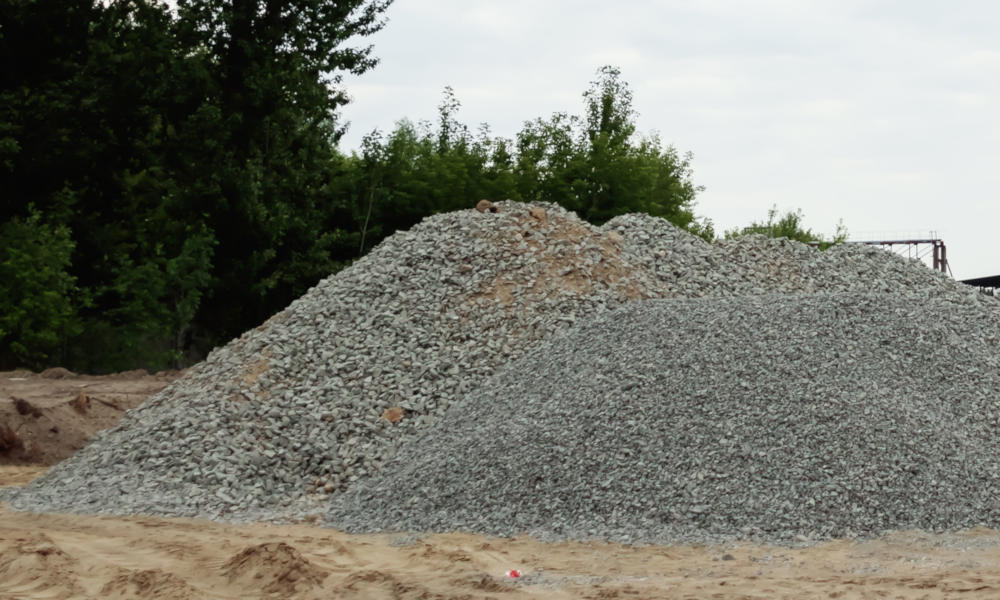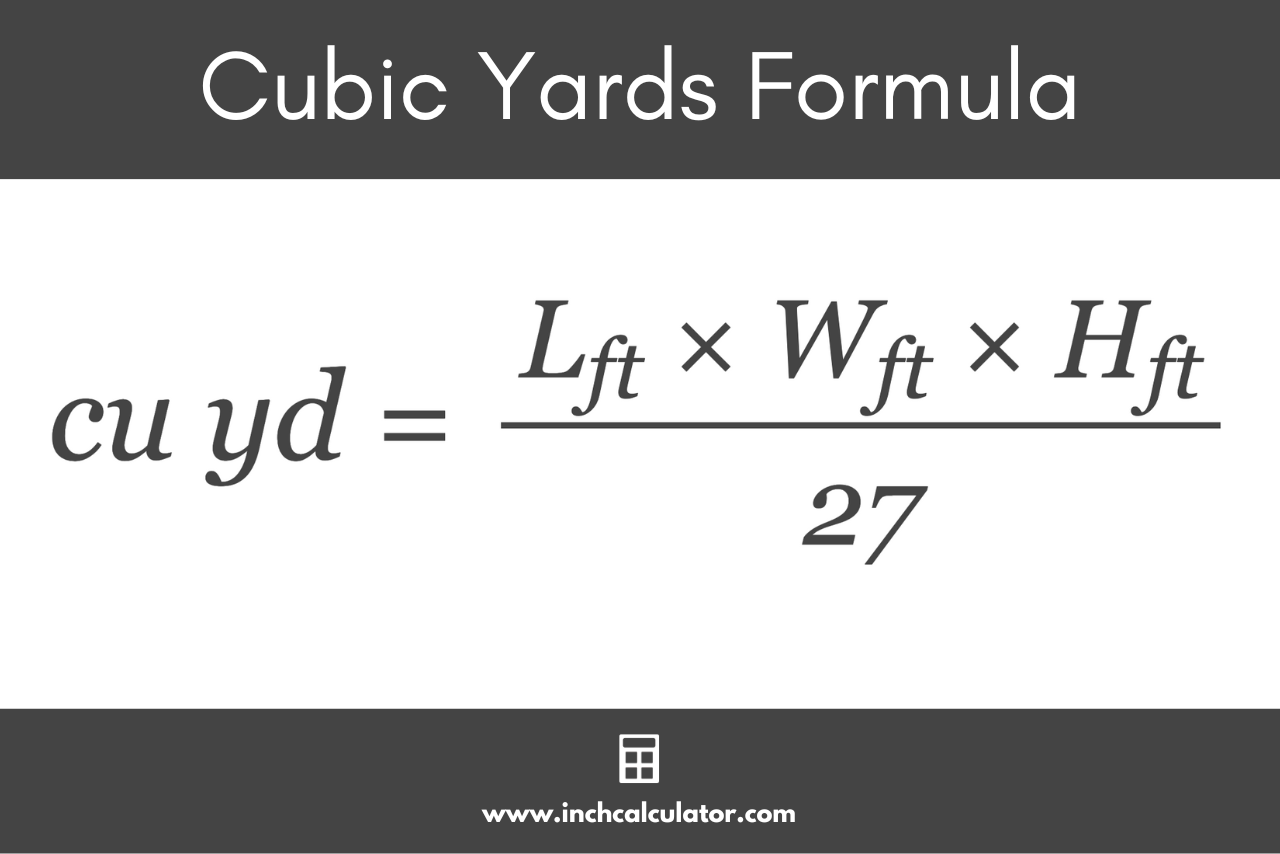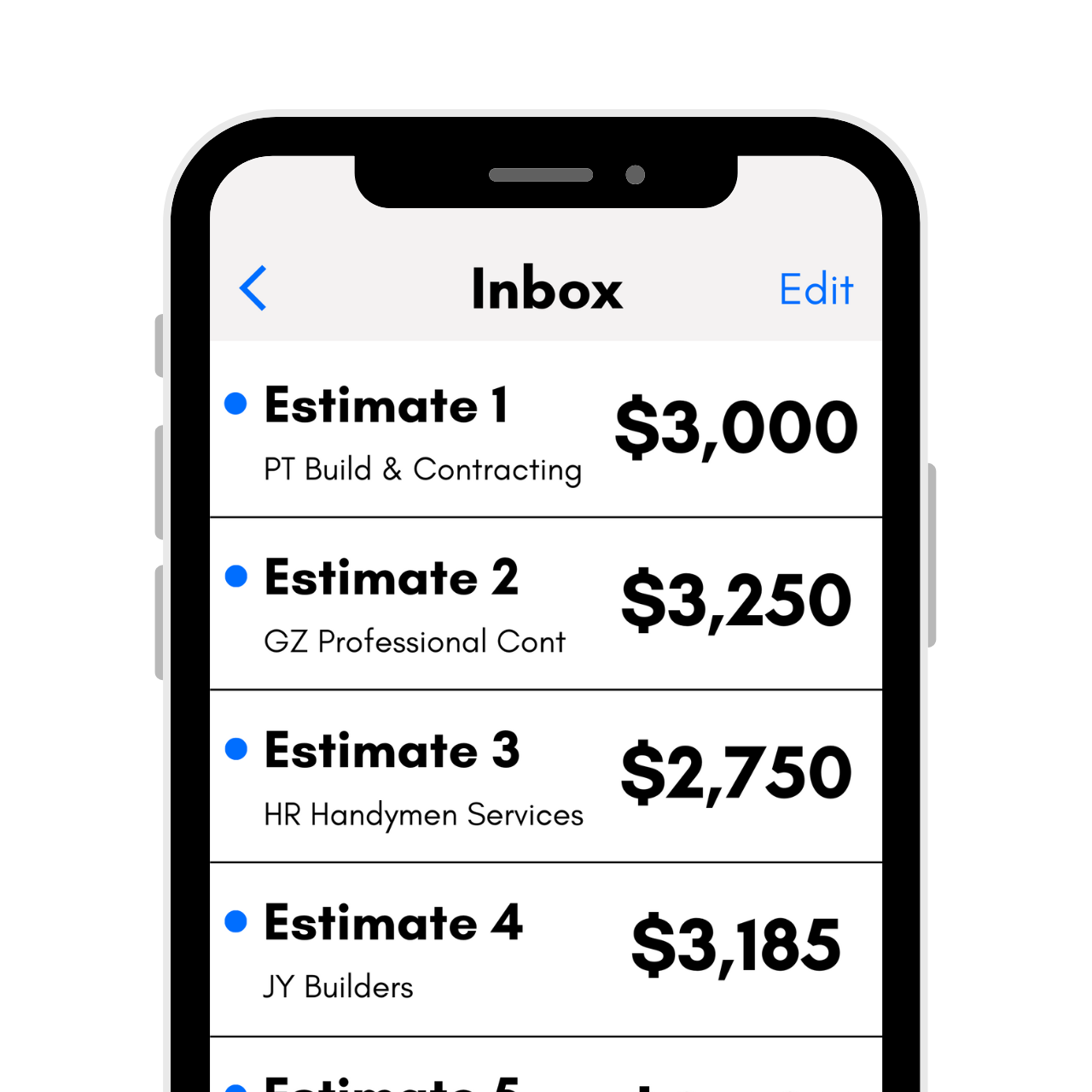Gravel Calculator
Estimate Yards and Tons
Calculate the amount of gravel or aggregate needed in tons and cubic yards by entering the dimensions below. Estimate material given the length/width/depth, the area, or the volume of material needed.
On this page:
How to Estimate How Much Gravel You Need
Gravel and other landscaping material are often sold either by the ton or the cubic yard. While this varies by supplier, many sell large volumes by weight in tons.
Therefore, to know how much material you will need to order, you will need to start with getting the weight of the material you need.
To find the weight of material in tons, you’ll need to know the approximate density of the material. Fortunately, there are some common densities that you can use for these calculations. See the chart below to see how many tons are in a cubic yard of gravel.

Step One: Calculate Volume in Yards
In addition to the weight of the material, you also need to know the volume of the space you are filling. Both weight per cubic yard and the total volume are necessary to determine how many tons you will need to order. Therefore, the first step to estimating how much gravel, sand, or soil you need is to estimate the volume of material needed.
Start by measuring the length, width, and depth of the area you need to fill in the same unit of measurement.
Multiply the length, width, and height together to find the volume of the space. If you measured in inches, then what you have is the volume needed in cubic inches, and if you measured in feet, then you have your total cubic feet.
Next, convert the volume to cubic yards.
If the initial measurements were in inches, then convert cubic inches to cubic yards by dividing the total number of cubic inches by 46,656. If the initial measurements were in feet, then divide the total number of cubic feet by 27 to get cubic yards.

As a shortcut, try our cubic yardage calculator to conveniently calculate your volume.
Step Two: Calculate Gravel Weight in Tons
Armed with the volume of material needed in cubic yards, the weight of material in tons can be found by multiplying the volume by the material density. Most gravel weighs 1.4 to 1.7 tons per cubic yard. See below for more common material densities.
For example, let’s find the amount of gravel needed for a space that is 10 feet long, 10 feet wide, and 1 foot deep.
volume = length × width × depth
volume = 10′ × 10′ × 1′ = 100 cu ft
cu yds = 100 cu ft / 27 = 3.7
weight = cu yds × density
weight min = 3.7 × 1.4 = 5.2 tons
weight max = 3.7 × 1.7 = 6.3 tons
How Many Tons in a Yard of Gravel
The chart below shows how many tons are in a yard of gravel, rock, sand, soil, and other landscaping materials.
| Material | Weight per Cubic Yard | Weight per Cubic Meter | ||
|---|---|---|---|---|
| Pounds | Tons | Kilograms | Metric Tons | |
| Gravel (¼” – 2″) | 2,800 – 3,400 lbs | 1.4 – 1.7 tons | 1,660 – 2,020 kg | 1.66 – 2.02 tonnes |
| Rock (2″ – 6″) | 3,000 – 3,400 lbs | 1.5 – 1.7 tons | 1,780 – 2,020 kg | 1.78 – 2.02 tonnes |
| Sand (wet) | 3,000 – 3,400 lbs | 1.5 – 1.7 tons | 1,780 – 2,020 kg | 1.78 – 2.02 tonnes |
| Sand (dry) | 2,600 – 3,000 lbs | 1.3 – 1.5 tons | 1,540 – 1,780 kg | 1.54 – 1.78 tonnes |
| Topsoil (wet) | 3,000 – 3,400 lbs | 1.5 – 1.7 tons | 1,780 – 2,020 kg | 1.78 – 2.02 tonnes |
| Topsoil (dry) | 2,000 – 2,600 lbs | 1 – 1.3 tons | 1,190 – 1,540 kg | 1.19 – 1.54 tonnes |
| Riprap | 3,400 – 4,000 lbs | 1.7 – 2 tons | 2,020 – 2,370 kg | 2.02 – 2.37 tonnes |
How Many Yards in a Ton of Gravel
The chart below shows how many yards are in a ton of gravel, rock, sand, and soil.
| Material | Cubic Yards per Ton |
|---|---|
| Gravel (¼” – 2″) | 0.59 – 0.71 cu yd |
| Rock (2″ – 6″) | 0.59 – 0.67 cu yd |
| Sand (wet) | 0.59 – 0.67 cu yd |
| Sand (dry) | 0.67 – 0.77 cu yd |
| Topsoil (wet) | 0.59 – 0.67 cu yd |
| Topsoil (dry) | 0.77 – 1 cu yd |
| Riprap | 0.5 – 0.67 yds |
How to Account for Overage and Compaction
In most instances, it’s a good idea to factor in additional gravel or overage when calculating what you need. For example, some gravel may be lost when you transport it to the final site. It may slip off your wheelbarrow or spill from the back of the truck prematurely.
In addition, if you are backfilling an area with gravel, there may be voids that you have not accounted for, which will increase the amount of gravel needed to complete the job. To account for these, it’s generally a good idea to order an additional 10%.
For example, if your calculations call for 5.2 tons of gravel, you will want to purchase 5.7 tons to account for necessary overage.
Gravel is also sometimes compacted prior to being covered with other materials or when using it for roads or driveways. This compacting can cause a reduction in 30% of the total volume needed to fill.[1] Therefore, you may need an additional 30% of material after factoring in your overage to account for the volume lost during compacting.
In the above example, 5.7 tons is necessary to include overage, but to account for compacting, you would potentially need up to 7.4 tons to make up the lost volume. It’s important to note that not all gravel needs to be compacted, and some varieties compact more than others, so this much additional material will not always be required for every project.
Frequently Asked Questions
Do you order gravel by the yard or ton?
This will largely depend on how much gravel you need and the supplier you are purchasing it from. Most suppliers sell gravel by the ton, but some may sell it by the yard, particularly if you only need a small amount.
How much will 1 ton of gravel cover?
This will vary depending on the size of the gravel, which can range from ½” to 2″ in size. A ton of gravel will generally cover between 0.59 to 0.71 cubic yards, with larger-sized gravel covering less area than smaller-sized gravel.
How much is one truck load of gravel?
Trucks come in many sizes and can handle various amounts of weight. The average pickup truck can carry 1 cubic yard of gravel, while a dump truck can carry 13 to 25 tons of gravel.
At a cost of $35 to $50 per ton, a full dump truck load could cost anywhere from $455 to $1,250.
Similar Landscaping Calculators
References
- U.S. Department of Transportation Federal Highway Administration, Gravel Roads Maintenance and Design Manual, November 2000, https://www.epa.gov/sites/default/files/2015-10/documents/2003_07_24_nps_gravelroads_gravelroads.pdf





